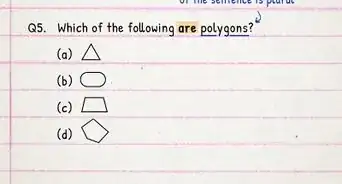wikiHow is a “wiki,” similar to Wikipedia, which means that many of our articles are co-written by multiple authors. To create this article, 35 people, some anonymous, worked to edit and improve it over time.
This article has been viewed 44,253 times.
Learn more...
The F-word and its usage is a very controversial topic. Nevertheless, the word does exist. It is also being used everyday by people from diverse age groups and social backgrounds. The f-word can be a very hurtful, offensive, mean, and/or vulgar word. However, in adults' conversations and certain situations, it can serve as a comic relief, a colorful method of expressing frustration, surprise, astonishment and friendly-exclamation amongst many other things. This article will try to outline usages of the f-word that are more generally accepted by the modern society. Take into consideration however that:
- This article is targeted towards adults.
- The article does not in any way encourage the use of the word. On the contrary, it is trying to limit its usage into very specific situations that might arise in closed, friendly social circuits where the use of the word will be more accepted. Most importantly, where the use of the word will not be considered offensive (most of the time).
- The article is not child-friendly, but to be safe, will not use the full spelling of the word. Instead, F will be used instead of the word in examples, and F-ing, F-ed will be used instead of the word in examples to denote the various tenses.
Steps
Unaccepted Usage
-
1Do not use the f-word if you are not an adult. Although there's no hard-lines or consensus on a certain age, the general recommendation will be:
- Never use the f-word if you are under the age of 13.
- Strongly avoid using the word if you are under the age of 18.
- Using the f-word might get you in serious trouble if you choose to use it while still under 18 (especially in schools or official gatherings).
-
2Understand certain scenarios in which usage is unacceptable. These may include:
- Formal social settings in which professionalism is expected, such as work meetings.
- Conversations with a person to whom you have a professional and formal relationship.
- An intent to use the word as a swear or otherwise offensive way towards the person you are talking to.
Grammatical Alternatives and Their Usage
-
1Know how to use the f-word as a noun. Usually, this is done by replacing a normal word with f to denote being annoyed
- Example: I don't give a f!/I don't give a f!
-
2Use the f-word as an adjective. This usage is f-ing. The meaning intended might be positive or negative depending on the context, body language and face expressions (if applicable).
- Examples: "What a F-ing party!"/"XYZ is doing all the F-ing work!"
-
3Know how to use it as a verb or action word. It can be used as a transitive, non-transitive, and passive verb. This usage can be dangerous as it usually can be understood, even by mistake, to denote the actual literal meaning. Usually, it can be used to denote messing something up. Depending on the context, it can denote betrayal, bad behavior, general messing up, or unapproved actions.
- Examples: "XYZ F-ed the whole thing!"/ "He F-ed his business partner by selling the secrets of the company!"
-
4Understand the usage as an adverb. The f-word can be a powerful adverb by adding more character to an expression. (Adjective)
- Example: "XYZ parties too F-ing much." (Added character by stating how much)
-
5In clauses and terms: F-word can be used in many de facto terms such as:
- F-ed up: usually meaning messed up.
- F-ed sideways: denoting being in a generally bad situation.
Generally Accepted Uses (For Adults)
-
1Provide comic relief in relaxed, casual, and private conversations. If the conversation is too serious and you want to drive it back to a more relaxed one, you can use expressions containing the f-word sparsely. For example: "Man, that's F-ing deep!"
-
2Express feelings of excitement or ecstasy. Some people insert the f-word within certain expressive words to add humorous improvisation.
- Examples:
- Fanf-ingtastic! (Fantastic)
- Absof-inglutely! (Absolutely)
- Inf-ingcredible! (Incredible)
- Asf-ingtonishing! (Astonishing)
- Examples:
-
3Express disapproval. When the f-word is inserted, it will denote your disapproval in an indirect way. For example: "I f-ing love it when people accuse me of things like this."
-
4Use it as an adjective to describe strong approval. In some social situations, this might be accepted or even welcome. However, this usually needs to be accompanied by facial expressions so as not to be misunderstood for the previous usage. Example: "Are you joking? I f-ing love soup!"
Community Q&A
-
QuestionCan I use the F-word if I'm 16?
 Community AnswerThat depends on where you are from and what your family is like, but it's pretty common for a 16-year-old to use it. Just avoid using it in school or around your parents.
Community AnswerThat depends on where you are from and what your family is like, but it's pretty common for a 16-year-old to use it. Just avoid using it in school or around your parents. -
QuestionMy friend got detention in school for saying the f word. How can I save him?
 Community AnswerYou can't. It's your friend's problem and fault for saying the f-word, and he will have to deal with the consequences of his actions.
Community AnswerYou can't. It's your friend's problem and fault for saying the f-word, and he will have to deal with the consequences of his actions. -
QuestionI read that the f-word is an acronym. How could I use this meaning of it in a sentence?
 Community AnswerThis is actually a myth. The word originated from an old Germanic word meaning "to move back and forth".
Community AnswerThis is actually a myth. The word originated from an old Germanic word meaning "to move back and forth".
Warnings
- The F word use is considered obscene in social contexts, but may be common in informal and domestic situations. Use it appropriately while using in sentences.⧼thumbs_response⧽
- The F word can be ambiguous and can easily be mistaken to be offense to a person. Use it cautiously in sentences.⧼thumbs_response⧽
- The f-word, despite having proclaimed international status, still continues to remain a taboo to many people in many English speaking countries. Try avoiding the vulgar usage of the word in the English Grammar.⧼thumbs_response⧽
- Do not use it in context to religion as it will most likely be interpreted as offense to any follower of the religion in question.⧼thumbs_response⧽



































































